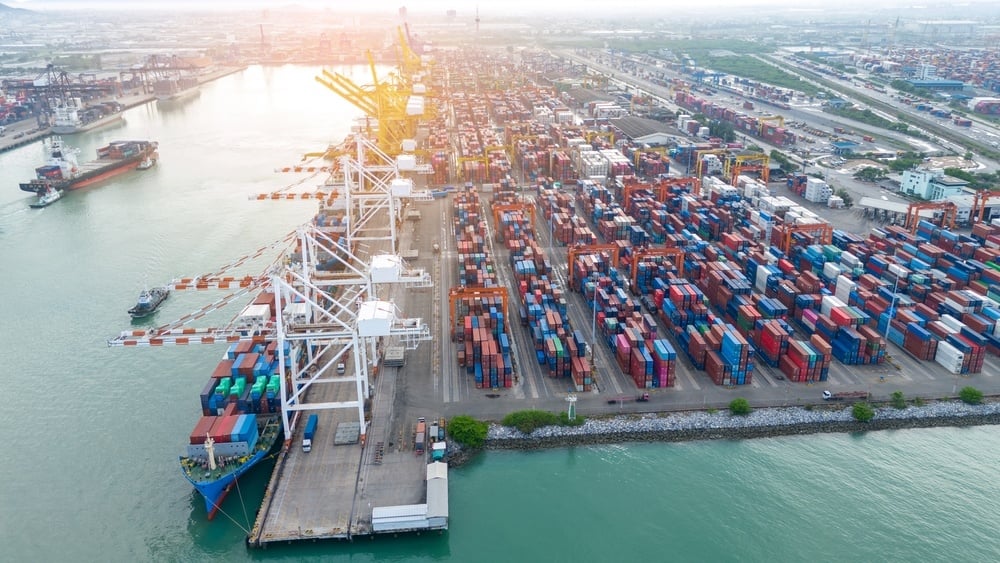Port Strike Ends, but Automation Debate Continues: What It Means for the Future

By - DAVACO
Dockworkers' Strike: A Temporary Conclusion with Long-Term Implications for Automation
On October 4, 2024, a historic strike erupted at major U.S. ports, including Los Angeles and Long Beach, bringing critical shipping operations to a standstill. The dispute between the International Longshore and Warehouse Union (ILWU) and the Pacific Maritime Association (PMA) wasn’t just about wages—it centered on a far deeper issue that has been reshaping industries worldwide: automation.
Automation at the Heart of the Negotiation
The core of the disagreement lies in automation's growing presence in port operations. The ILWU is fighting to limit the use of container-handling machinery, fearing that the adoption of automated systems will lead to significant job losses. Their demand? A ban on further automation to protect workers' livelihoods. On the other side, the PMA argues that automation is essential for improving efficiency, reducing costs, and ensuring the long-term competitiveness of U.S. ports in the global economy.
Automation, from automated cranes to robotic container movers, has the potential to drastically cut labor costs and streamline operations at ports, reducing the need for human involvement in many labor-intensive tasks. However, this push for innovation threatens the job security of the ILWU workforce, sparking resistance from union leaders who argue that automation puts their members' future employment at risk.
The Automation Dilemma: Balancing Progress and Workforce Concerns
For the PMA, automation isn’t just a nice-to-have—it’s a necessity. Global competitors, particularly in countries like China and Singapore, have already embraced port automation, and U.S. ports are struggling to keep pace. Automated systems can operate 24/7 without breaks, reducing cargo handling times and increasing overall productivity. The PMA contends that without these innovations, American ports will fall behind, losing out on international shipping business.
Yet, for dockworkers, the threat of automation is existential. The ILWU’s concerns are rooted in the fear that automated machinery will eventually replace their jobs, leading to mass layoffs and the erosion of stable, well-paying union jobs. Although some automation systems still require human oversight, many in the workforce worry that further advancements will eliminate their roles altogether, leaving them with fewer job opportunities in a rapidly transforming industry.
Negotiating the Future of Work
As part of the strike resolution, the ILWU and PMA agreed to a temporary truce, with dockworkers resuming their duties while both sides return to the negotiating table within 90 days. The central issue remains: how can the ports implement automation without sacrificing the livelihoods of the workers who have powered the industry for generations?
This ongoing negotiation reflects a broader challenge facing many industries today. The tension between technological innovation and job security is not unique to the shipping industry—similar disputes have played out in fast food, retail, and logistics, as companies like McDonald’s and Amazon increasingly incorporate automation to drive efficiency and lower labor costs. The key question remains: how can industries embrace the benefits of automation while addressing the concerns of the workforce?
How DAVACO Helps Drive Innovation Without Disruption
The challenge of implementing automation isn't confined to ports—it affects businesses across many sectors, including logistics, retail, and hospitality. The delay in automating port operations underscores a broader issue: while companies recognize the importance of automation, many struggle with the complex process of integrating new technologies into existing systems without disrupting operations.
That’s where DAVACO comes in.
At DAVACO, we specialize in helping companies execute large-scale technology rollouts across multiple sites, ensuring that automation can be implemented quickly and efficiently, with minimal disruption. Whether it’s automating processes in logistics, upgrading technology in retail locations, or deploying new systems in restaurants, our expertise in Facilities Maintenance and Project Management ensures a smooth transition from old to new.
Our services focus on reducing the downtime and operational hiccups that can accompany the adoption of automation. For industries like shipping, where delays can cripple supply chains, this is critical. The key to staying competitive and safeguarding against labor disruptions is to incorporate new technology faster than the competition. DAVACO has helped businesses achieve this by handling every aspect of the implementation process—whether it's installing automated equipment or managing the logistics of upgrading thousands of locations simultaneously.
Looking Forward: Preparing for Automation’s Inevitable Expansion
While the recent strike may have temporarily paused operations, the issue of automation is far from resolved. For businesses that rely on the steady operation of ports, the lesson is clear: those who are proactive in adopting new technologies will be best positioned to thrive in an increasingly automated world. However, it’s not just about having the right equipment—it’s about ensuring that these innovations can be deployed at scale, quickly, and without disrupting business.
As automation becomes an integral part of logistics, retail, and other industries, companies will need partners like DAVACO to help make that transition seamless. By reducing downtime and ensuring that technology deployments are executed efficiently, DAVACO helps businesses future-proof their operations, making sure they are prepared for whatever challenges arise—whether it's labor disruptions or evolving customer demands.
What’s Next?
Inevitably, the larger issue of automation will remain on the table for the foreseeable future. As industries worldwide move toward increased automation, businesses must plan for a future where innovation is not just an option but a necessity. With DAVACO's expertise, companies can make the shift to automated systems faster and more efficiently, ensuring they stay competitive while mitigating potential disruptions.
If you are ready to implement new technology or automations in your retail locations, contact DAVACO today to begin the process.



